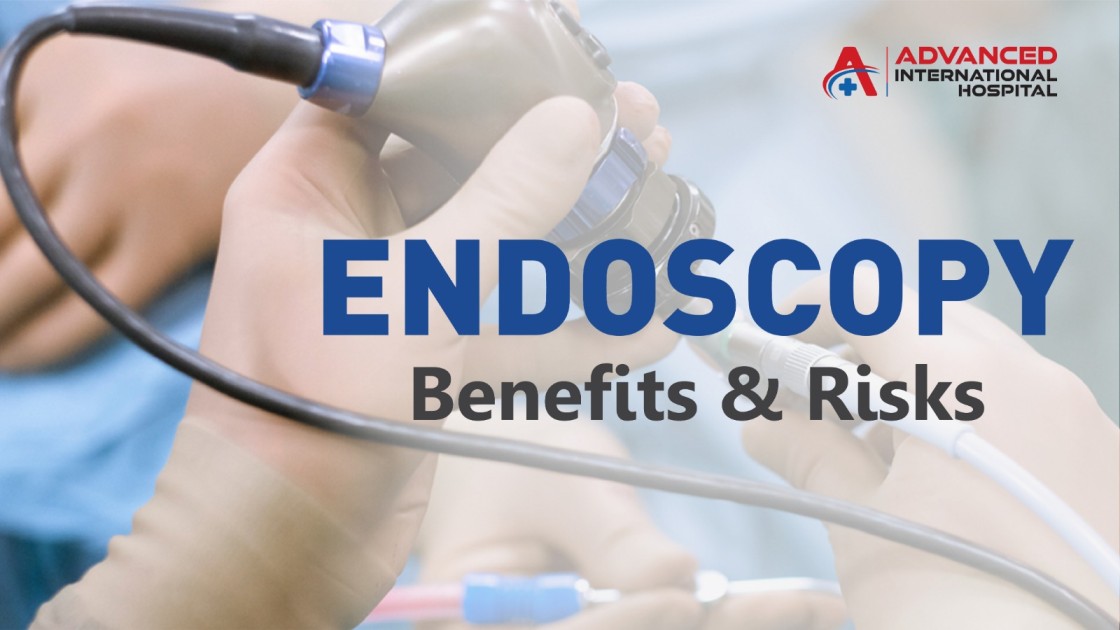
An endoscopy is a medical procedure that allows a doctor to examine the inside of the body using a thin, flexible tube with a light and camera at the end. Endoscopes can be used to diagnose and treat a variety of conditions, including digestive problems, respiratory problems, and urinary problems.
Benefits of Endoscopy.
Endoscopy has many benefits, including:
Diagnosis: Endoscopy can be used to diagnose a variety of conditions, including ulcers, bleeding, celiac disease, blockages, inflammation, and tumors.
Treatment: Endoscopy can be used to treat a variety of conditions, such as removing polyps, stopping bleeding, and draining abscesses.
Monitoring: Endoscopy can be used to monitor the progress of treatment for conditions such as cancers, gastroesophageal reflux disease, stomach ulcer and barrett’s esophagus.
Prevention: Endoscopy can be used to prevent certain conditions, such as colon cancer, by identifying and removing precancerous growths.
Risks of Endoscopy
Endoscopy is generally a safe procedure, but there are some risks associated with it, including:
Infection: There is a small risk of infection from the endoscope.
Bleeding: There is a small risk of bleeding from the procedure.
Perforation: There is a small risk of perforation, which is a hole in the organ that is being examined.
Sedation complications: If sedation is used during the procedure, there is a small risk of complications, such as breathing problems or allergic reactions.
Who Should Consider Endoscopy?
Endoscopy is a valuable diagnostic and treatment tool for a variety of conditions. If you are experiencing symptoms such as abdominal pain, bleeding, or difficulty swallowing, your doctor may recommend an endoscopy.
How to Prepare for Endoscopy.
To prepare for an endoscopy, you will need to follow your doctor’s instructions carefully. This may include fasting for a certain period of time before the procedure and taking medications to clear your bowels.
What to Expect During Endoscopy.
During an endoscopy, you will be given medication to help you relax. The endoscope will then be inserted into your body through your mouth or rectum. The doctor will be able to see the inside of your body and take pictures or videos.
Recovery from Endoscopy.
Most people recover from endoscopy quickly and can go home the same day. You may experience some discomfort or bloating after the procedure, but this should go away within a few days.
In Advanced International Hospital the Department of Gastroenterology is fully equipped with all the latest equipment. Our highly qualified consultants are available round the clock to provide assistance related to your gastric issues. Do not wait and get advice today!

